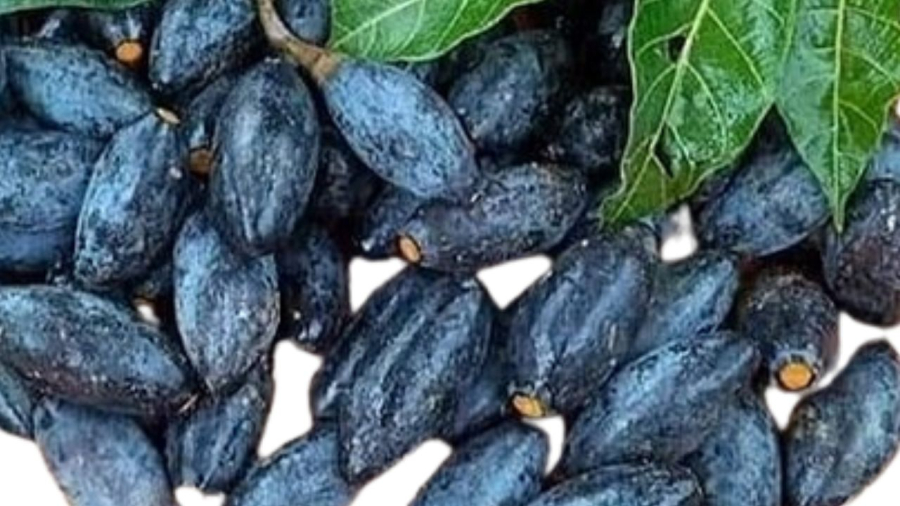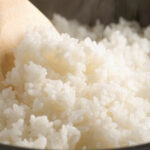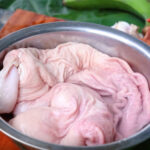Sticky rice with jambul is a delicious and unique dish that is not commonly found on menus due to the seasonal availability of jambul, which is typically harvested between late summer and early autumn. This dish is a delightful treat, with the sticky rice providing a chewy texture and the jambul adding a creamy, buttery flavor and a gorgeous purple hue. The purple color of the jambul is distinct from that of regular purple rice, making this dish a visual delight as well.

Ingredients and Preparation:
The main ingredients for this dish are black jambul and sticky rice. Additionally, you’ll need shallots, meat (optional), and some basic seasonings. Here’s a step-by-step guide:
– Selecting Jambul: Choose jambul that is slender and elongated, with a firm texture and a white powdery coating on the skin. The skin should be taut and not wrinkled or peeled.
– Sticky Rice: Look for round, plump grains of sticky rice, ensuring they are not broken and have a uniform color.
– Soaking and Prepping Rice: Soak the sticky rice for about 10 hours before cooking to achieve the desired softness and speed up the cooking process.
– Jambul Prep: Wash the jambul thoroughly and blanch it in hot water at around 80°C for 3-5 minutes. Do not let the water boil, as it will toughen the jambul. Cut the jambul in half and use a sharp object to remove the seed, which is creamy and delicious. This step is time-consuming but worth the effort.
– Cooking Options:
– Vegetarian Option: Mix the soaked rice with the jambul flesh and seeds. Line the bottom of a steamer with a cloth to prevent the rice from sticking. Steam the rice and jambul mixture for about 30 minutes, or until the rice is cooked. For extra stickiness, try the two-fire method: steam for 20 minutes, let it cool, and then steam again before serving. If desired, fry some shallots in oil and mix them into the rice for added flavor and shine.
– Meat Option: Steam the sticky rice as mentioned above. Simultaneously, prepare the meat filling by frying shallots in oil until fragrant. Add ground or minced meat and cook until it changes color. Mash the jambul and mix it with the meat. Season with fish sauce and seasoning powder. Finally, mix the cooked rice with the meat and jambul mixture, ensuring an even distribution of colors and flavors.
The key to delicious sticky rice with jambul is achieving the right texture—the rice should be sticky and chewy, not mushy, and the jambul should be creamy and well-incorporated, adding a beautiful purple hue and a buttery flavor to the dish.
The Rise of the ‘Unusual’ Delicacy in Bac Kan: From Rustic Fare to a Culinary Sensation for Connoisseurs
Have you ever heard of a peculiar delicacy from Bac Kan, a province in northern Vietnam, that was once considered a poor man’s meal, but has now become a renowned delicacy across the region? The secret lies in its unique flavor, one that captivates the taste buds and leaves an everlasting impression on those who indulge.
The Ultimate Guide to Cleaning a Pig’s Stomach: A Simple Yet Effective Method!
The art of preparing pork stomach for culinary delights is a delicate process that demands attention to detail. It is imperative to meticulously clean and prepare the stomach to eliminate any unpleasant odors that may linger. This crucial step ensures that the final dish is not only tasty but also free from any undesirable smells that could ruin the dining experience.
Does Eating Sticky Rice Cause Acne? Understanding the Impact of Sticky Rice on Skin Health
Introducing a culinary delight that is beloved by many – Xôi, a dish that is synonymous with comfort and tradition. But is there a hidden downside to this tasty treat? Could indulging in a bowl of Xôi lead to unwanted skin breakouts? It’s time to uncover the truth and explore whether this humble dish could be the culprit behind those pesky pimples. Join us as we delve into the world of Xôi and uncover the secrets behind its potential impact on your skin.


































